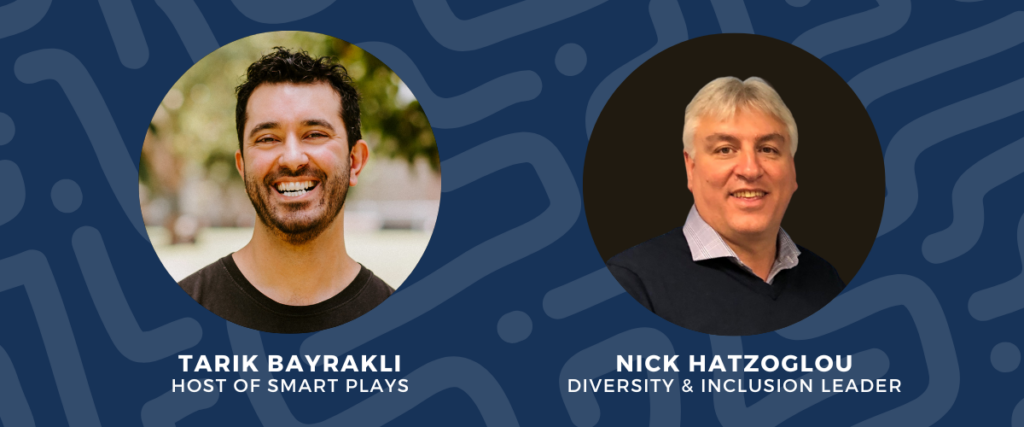Wisdom from a sports diversity warrior
In each fortnightly episode of Smart Plays, Tarik and special guests will be tackling difficult social issues in sport and exploring our capacity for positive social change. In this episode, we speak with Nick Hatzoglou about the leadership required in sports clubs to make them accessible for marginalised groups.
Listen on: Spotify | Apple Podcasts | Google Podcasts | Amazon | Others
Overview
Are ethnic clubs good for football? Can AFL still capture the multicultural market, or have they missed the boat? Can cricket shake its title of being pale, male and stale? How are these sports helping marginalised and multicultural communities to play the sports we love?
We speak with Nick Hatzoglou, a road-warrior in the community sport development world, having held significant community-focused roles with Cricket Australia, the Australian Football League and Football Victoria.
As a leading practitioner in creating diverse and inclusive clubs, we hear from Nick as he shares his insights, successful club stories and case studies.

Key takeaways
“When ethnic clubs, or clubs that are very culturally prominent, are used as a destination club for different ethnic communities and they welcome people, I think that’s when they’re at their best.
People need safety in their own kind. We see that when we go to Earl’s Court in London, where a lot of Aussies congregate and help each other. They talk about jobs, opportunities, and they know that there are things that they can talk about that there’s a certain level of awareness that’s just accepted.
When these ethnic clubs include others and welcome others in to their clubs, that’s a really good thing for the game. And when they nurture social cohesion and look to learn and include other people those ethnic clubs are at their best.
The more challenging side is when they’re closed to other groups or individuals or when they promote nationalistic extremist views. They’re at their most negative when they utilise community assets and they’re just kept in a certain sub-group” – Nick Hatzoglou
—
“With football there’s not as much selling of the game. Ya know, the beauty of the game, the benefits of the game. It’s more about providing access, it’s about facilities, it’s about social cohesion, it’s about anti-racism and combatting all those challenges.
With AFL we had to teach migrants what this game is all about and what it means.
With Cricket, it’s such a skilled game that outside the South-Asian community, it’s still perceived as a very white anglo sport that presented other problems.” – Nick Hatzoglou
Here are some of the lessons learned throughout the episode:
- Ethnic clubs: Are they good for the game of football? we hear arguments from both sides.
- The rising cost of playing football: The elite high-performance side of football has some big questions to be answered, none more so important that the NPL’s structure and ensuring that football is an affordable sport for parents to take their kids.
- Power used for good in Cricket: The power in sports clubs is best used by Presidents and committees who are willing to invest in the community. We learn about Nick’s experience as the “Greek Kid” approaching his local cricket club in the 1970s.
- Gender balance in Football: We discuss Football Victoria’s long-term target of gender participation and how this won’t be achieved unless women and girls are integrated at every level of football.
- Multicultural inclusion in Aussie Rules Footy: The AFL multicultural program’s ability to cut through into migrant communities – has the AFL been successful? what’s holding it back and can it still succeed before 2050?
Links
We covered a lot in this episode! But, here are some notable links:
Want to be in the know about all things Smart Plays?